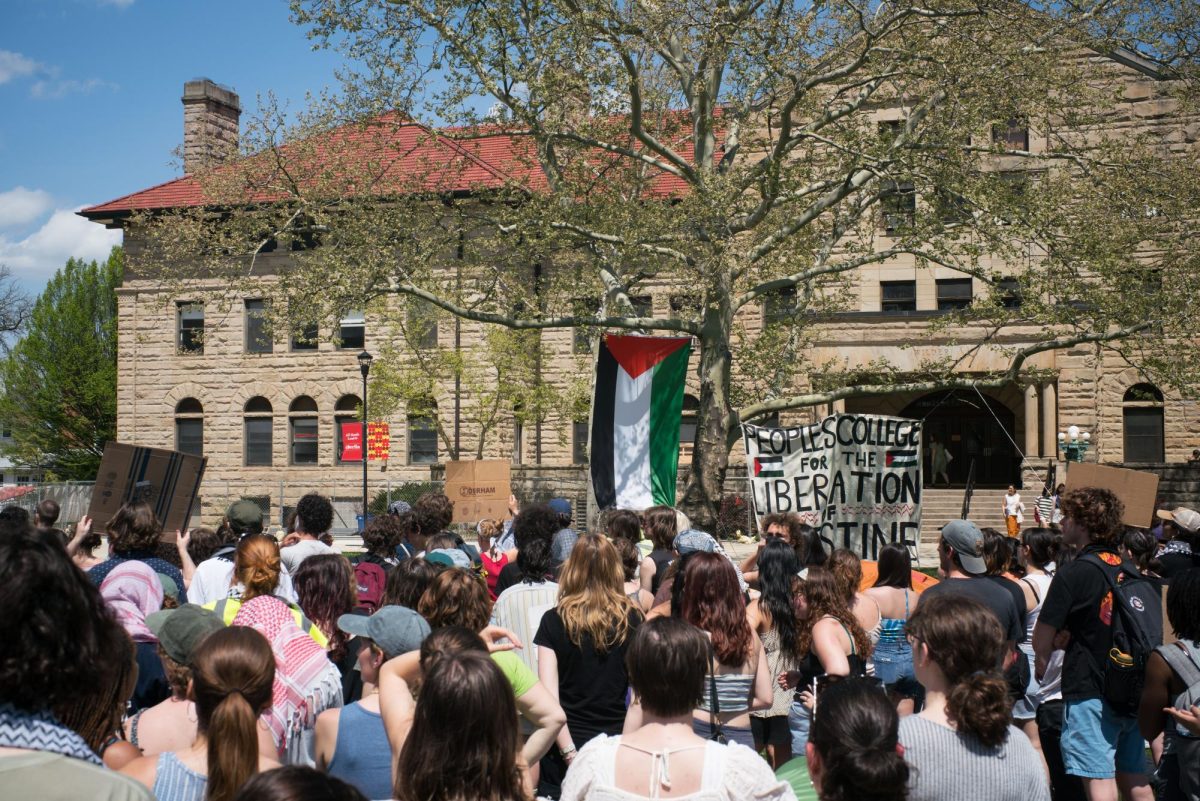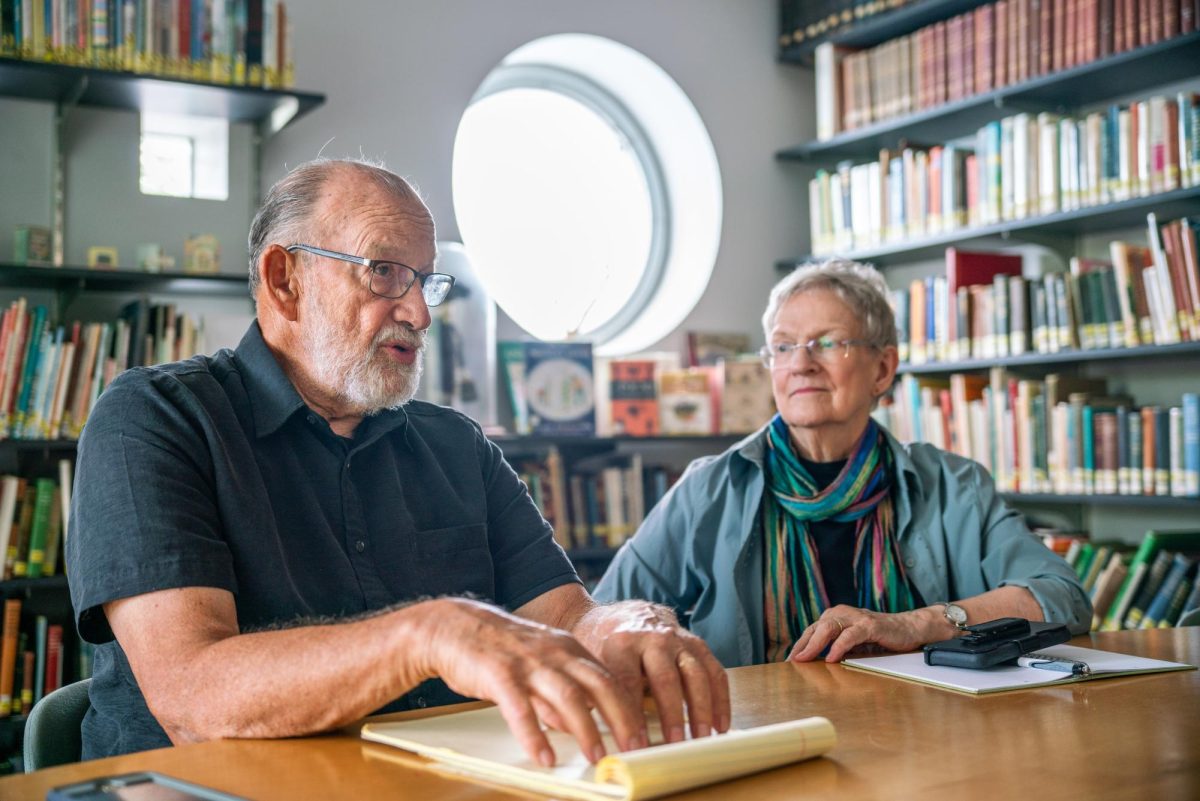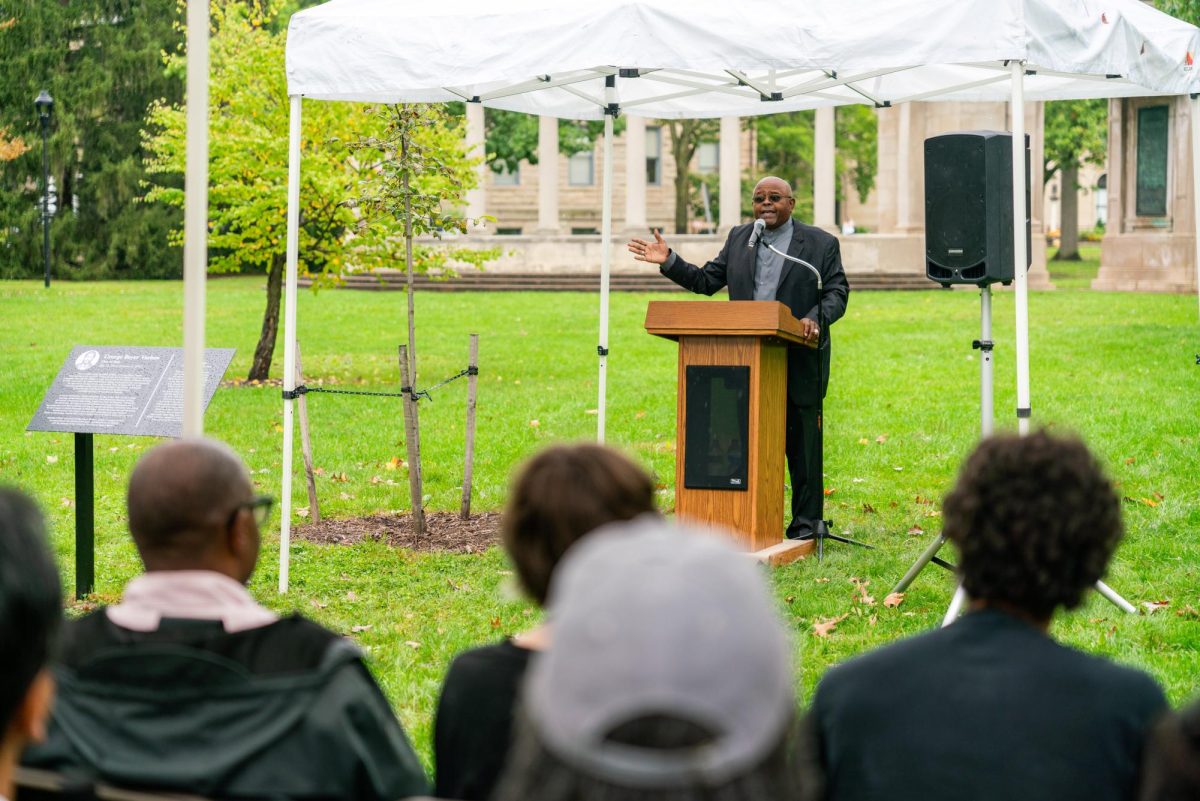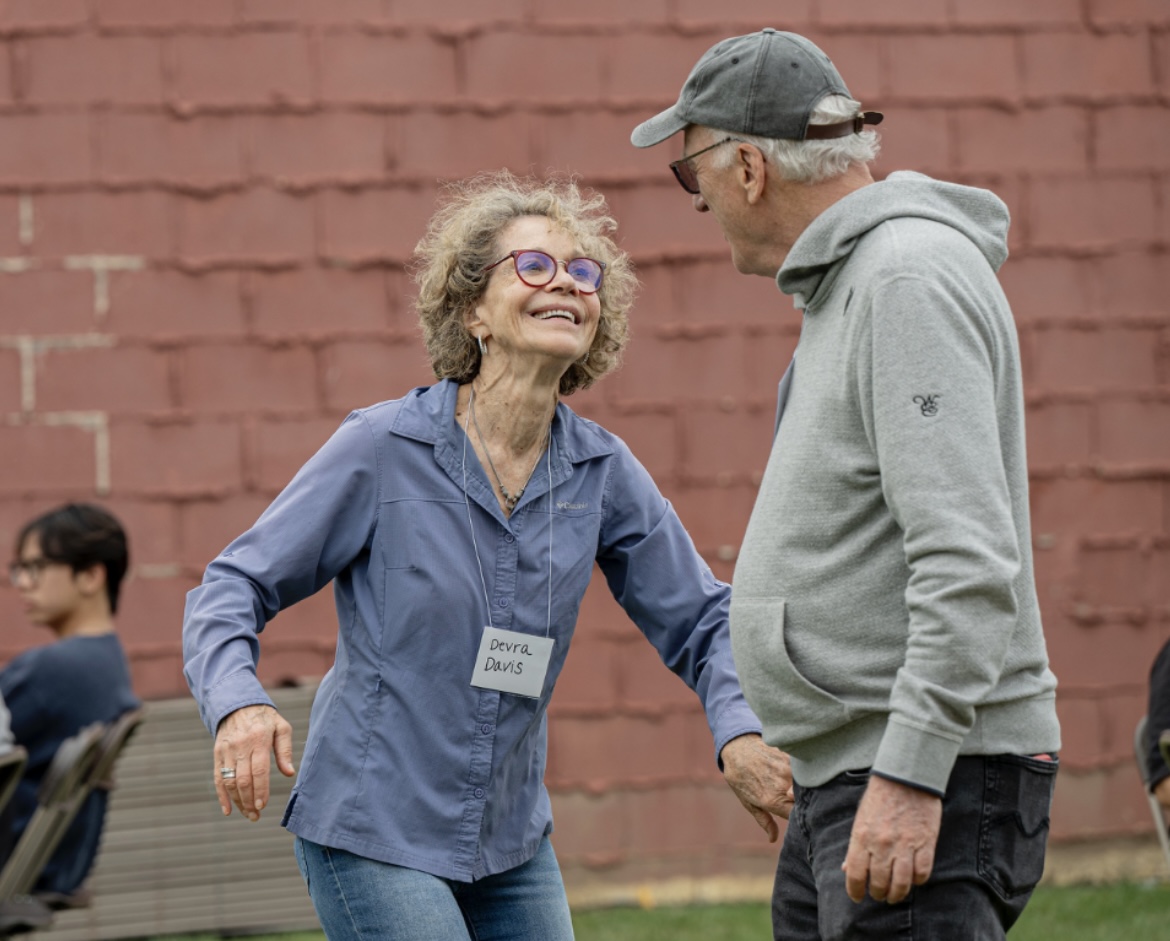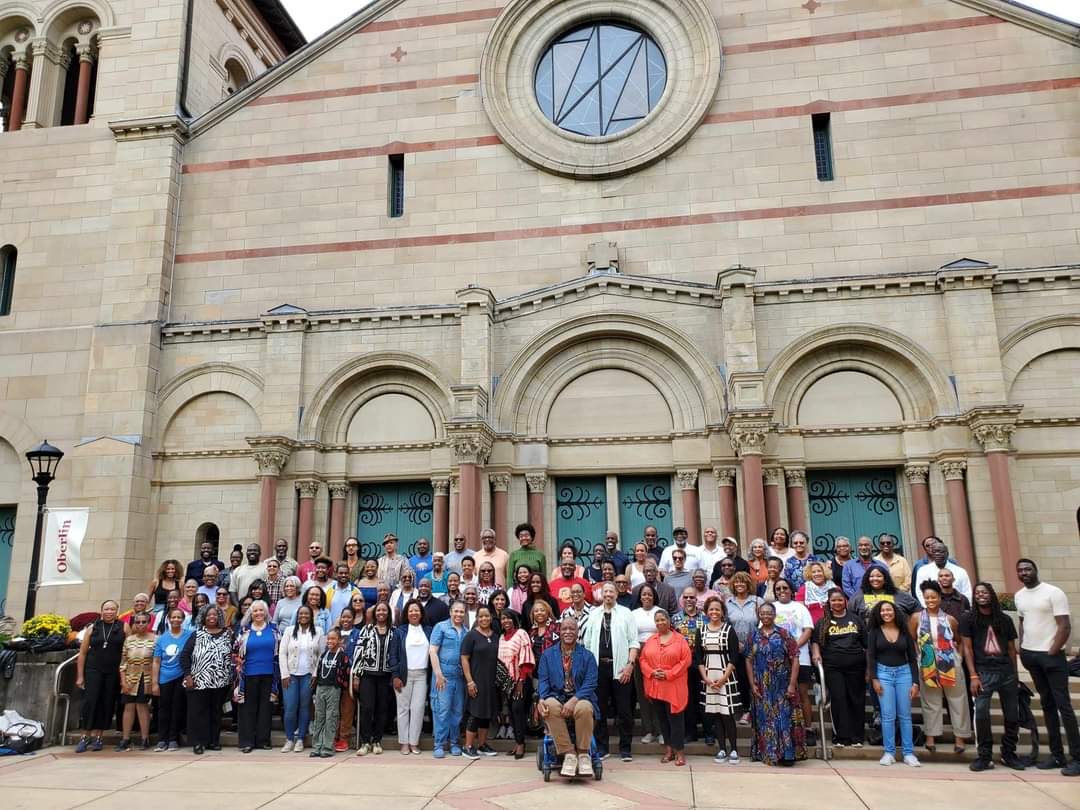Within Oberlin, international students and faculty bring experiences to the classroom that are distinct from their domestic counterparts.
Many faculty who now teach at Oberlin grew up in circumstances very different from the U.S., often studying languages other than English in their high schools. Senior Lecturer of Italian Ivana Di Siena said that her town was so small that it didn’t even have a high school.
“I grew up in a little town between Rome and Naples,” she wrote in an email to the Review. “My town was so small that I had to get on a tour bus every morning to go to the nearest high school, in the city of Cassino, 15 miles away. High school students would go to class on Saturdays and didn’t eat in school. I would have lunch at 3 p.m. after returning home.”
The professors interviewed for this article stayed in their home countries for their bachelor’s degrees before going abroad for either their jobs or advanced degrees. They spoke about their experiences in college and how it differs from the education system in the United States.
Assistant Professor of Economics Shana Cui originally went to Capital Normal University in China for her undergraduate studies before getting her master’s in Economics from Beijing Jiaotong University. She then came to the United States and received her master’s and Ph.D. from the University of Florida.
“I feel like in the U.S. the program is designed to first have some core courses for students to have the basic background for future research,” Cui said. “In China, we actually jumped to the research in the early stage — earlier than the US program. … Also in China, … you need to choose an advisor from the first year [of] the Ph.D., but in the U.S. you can make that decision during the third year after you have some experience in research for the first two years.”
Professor Di Siena shared her experience at the Sapienza University of Rome. She said that attendance was not mandatory, and everyone had to manage on their own. The exams at the university were all oral, which she described as “more like an interrogation than an oral exam.”
“I remember that for one subject, Italian Literature 101, it took me about three months and about 10 hours of studying per day to prepare,” Di Siena wrote. “I had to study 13 books, including the entire Divine Comedy. All this on my own, without even attending a single class.”
At the end of her time there, she had to write a 200-page thesis to graduate.
Visiting Professor of English Asif Iqbal attended the University of Dhaka in Bangladesh which came with its own unique sense of history through its agitation and protest. He spoke about how the University of Dhaka has changed the nation’s history through repeated protest and agitation and how his time there allowed him to be at the center of the country’s hub of political activity.
“In a post-colonial society like Bangladesh, … universities are the hotbed of political activities,” Iqbal said. “So when I entered the University of Dhaka as an undergraduate, I was drawn into the world of politics. … These places are loaded with history, mind you, all these big historic changes that have happened in what is now Bangladesh. Through its journey from being the easternmost frontier of the Bengal province in colonial British India to a Pakistani province to a newly independent nation in 1971. All these histories were formed in an institution like the University of Dhaka, which was founded in 1921. So I have been able to get acquainted with that sense of history.”
When they came to the U.S., either to teach or study, professors from abroad often experienced the stark differences and considerable challenges that come with moving to a new country.
Di Siena said that she came to Ohio after college to follow her boyfriend. She described being fascinated by the size of everything in the U.S. and having issues with English and the food available.
“The first impression was that everything was big!” Di Siena wrote. “Cars were big, refrigerators were big, milk cartons were big, roads were big, and pretty much everything else too. In the beginning, my biggest challenges were the language — I was fluent in French, but my English was rudimentary at the time — and the food.”
Iqbal said that when he went to the University of Maine for his master’s, he was unaware of the complexities of the U.S. — choosing the university because a professor there specialized in the influence of Russian literature on third-world literature. He said that he faced challenges when it came to the teaching he had to do as a teaching assistant, but liked the experience overall.
Di Siena wrote about her cultural experience immigrating.
“After 25 years in the U.S., I can say that I have found a perfect balance between the two cultures,” she wrote. “I still preserve some Italian traits, but I have adopted some American customs. Fortunately, we live in an era and in a place where individuality is respected and cherished.”
Iqbal also highlighted the differences between countries in the cultural context and his experiences of them.
“To some extent, it’s a very different lifestyle,” Iqbal said. “Whereas back home, I had a very communally-oriented lifestyle where immediate family is very significant to your day-to-day existence. Here in the U.S., it’s more you fend for yourself and that is a difference that I have come to accept and I have come to learn. I think there are good in both ways of life. Sometimes I miss home, but then again, I’m very much used to this life of doing research, teaching in the College, as well as doing my own work.”




